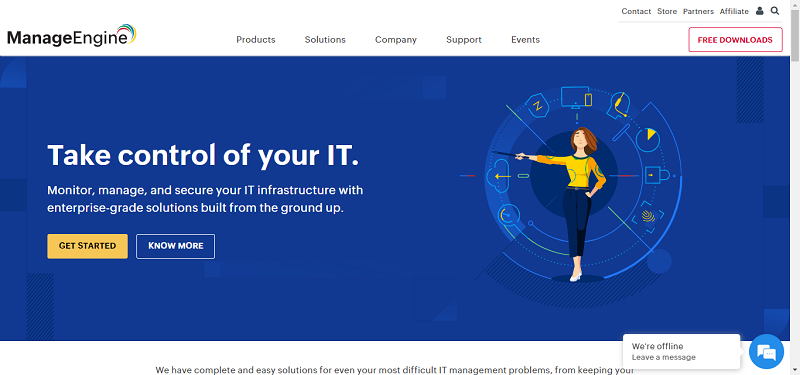Consumer goods companies have seldom had things tougher. The possibilities shown to consumers by customer experience leaders such as Amazon, Google and Facebook have whet out appetites for more compelling services from all companies – including those in the consumer goods industry. We no longer want mere products; rather, we demand experiences that bring new convenience to our lives and reflect what we’re doing from moment to moment.
What’s being asked of brands is truly challenging: to provide personalized, hyper-relevant goods and services on a mass-market scale. Achieving this will demand a full-scope transformation encompassing everything from new digital customer touch-points, product conception and design, manufacturing and after sales support. It will also require reshaping the backbone of the enterprise so that it is agile enough to turn on a dime as customer demand dictates. Data will be critical, providing the insights on which the best decisions can be made and the fuel by which new platform-based business models will roar into life.
Today, consumer goods leaders are leading the way and showing the market at large what can be achieved through a successful transformation. What they have in common is that they are leveraging the cloud as the bases of their transformations, using the platform to enable cutting-edge analytics, automation and AI capabilities. The result is hyper-relevant products and services delivered at scale.
One such leader is Del Monte Foods. Over its 100-year history, the company has become a household name and is now one of the most successful companies in the US fruit, vegetable, tomato and broth packaged foods categories. However, this is amongst the most competitive consumer goods sectors, and category growth had started to slow. To halt this decline and re-establish a strong growth story the company developed a new strategy, one that would put the customer at the heart of everything while driving next-level efficiencies to help fund growth and innovation.
The company realized that to achieve its strategy it would need to modernize its technology infrastructure so that it could more easily sense new market opportunities and get products to market faster. It therefore implemented a pivot to the cloud, migrating its entire IT infrastructure – including its core SAP ERP system – to the public cloud (Amazon Web Services). The case for the cloud was compelling; allowing Del Monte Foods to improve performance and speed and realize significant cost savings by consolidating a fragmented IT environment and better managing the hundreds of different apps across its enterprise.
As Del Monte Foods set about its migration it was clear the company didn’t have time on its side. As a packaged goods company any disruption to its operations would result in food going to waste – particularly during the critical canning season, which at the time was approaching fast. In the face of this pressure, Del Monte Foods turned to Accenture for help.
At Accenture, we’ve leveraged the Cloud Factory which brings together a suite of automation software, cloud migration tools and deep expertise to accelerate cloud deployments. We wasted no time in putting the Factory into motion for Del Monte Foods’ business applications, while also deploying the Accenture Cloud Platform to automate the management of Del Monte Foods’ cloud services. This meant Del Monte Foods could free up its resources to focus on innovating its core competencies of food production and distribution.
The approach worked perfectly, and Del Monte Foods was able to complete its migration in just three and a half months. This is a blistering pace considering that the migration included 200 servers and the 50 complex workloads associated with Del Monte Foods’ SAP ERP. The migration was so smooth that Del Monte Foods’ business users didn’t notice the change, and IT support had minimal issues to deal with during the transition.
Thanks to its cloud transformation, Del Monte Foods now has the ability to scale IT resources up and down dynamically to meet demand. Not only does this reduce unnecessary costs (Del Monte Foods now only pays for the resources it uses) but more importantly it enables a more fluid and responsive organization by consolidating and automating back- and front-office functions. The company now has in place a future-ready, agile and data-driven IT backbone to enable the automation, analytics and applied intelligence capabilities required to gain customer insight, inform innovation and accelerate product to market. In short, Del Monte Foods is now ready for relevance at scale, and as a result can look forward to a prosperous future.
Del Monte Foods’ case offers the consumer goods industry welcome evidence that wholesale cloud transformation is categorically not synonymous with long and disruptive migrations and spiraling costs. When managed correctly, the migration to the cloud can be seamless and rapid. And with customers already demanding more from their brands it’s essential all companies make this pivot soon.
By Kishore Durg, Senior Managing Director, Accenture Cloud and Chad Anderson, Vice President and Chief Information Officer of Del Monte Foods





